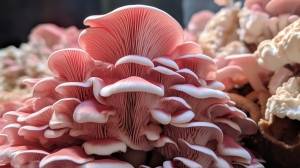Of course we know what mushrooms can do!
To be sure you know as well, we have written a summary of below video from National Geographic:
Communication Networks: Mushrooms form vast underground networks (mycelium) that allow trees and plants to communicate and share nutrients.
Environmental Impact: Mushrooms can break down pollutants and toxins in the environment, aiding in bioremediation.
Medical Uses: Compounds in mushrooms have potential health benefits, including anti-cancer properties and supporting mentalhealth through substances like psilocybin.
Nutritional Benefits: Mushrooms are rich in vitamins, minerals, and antioxidants, contributing significantly to human health.
Building Materials: Mycelium can be used to create sustainable, biodegradable building materials like bricks and insulation, which are strong, fire-resistant, and eco-friendly.
Source: National Geographic
Biodegradable bags to revolutionise mushroom farming
University of Queensland researchers are working with industry to develop biodegradable ‘plastic’ bags for use in mushroom farming, which could open lucrative opportunities in packaging and manufacturing.
Dr Nasim Amiralian from UQ’s Australian Institute for Bioengineering and Nanotechnology is collaborating with Queensland producer Scenic Rim Mushrooms to reduce the company’s reliance on plastic ‘grow bags’.
“Grow bags are widely used across the fungiculture industry, but most are made from non-biodegradable materials which can only be burned or sent to landfill,” Dr Amiralian said.
Please read the full article here.
Source: The University of Queensland























